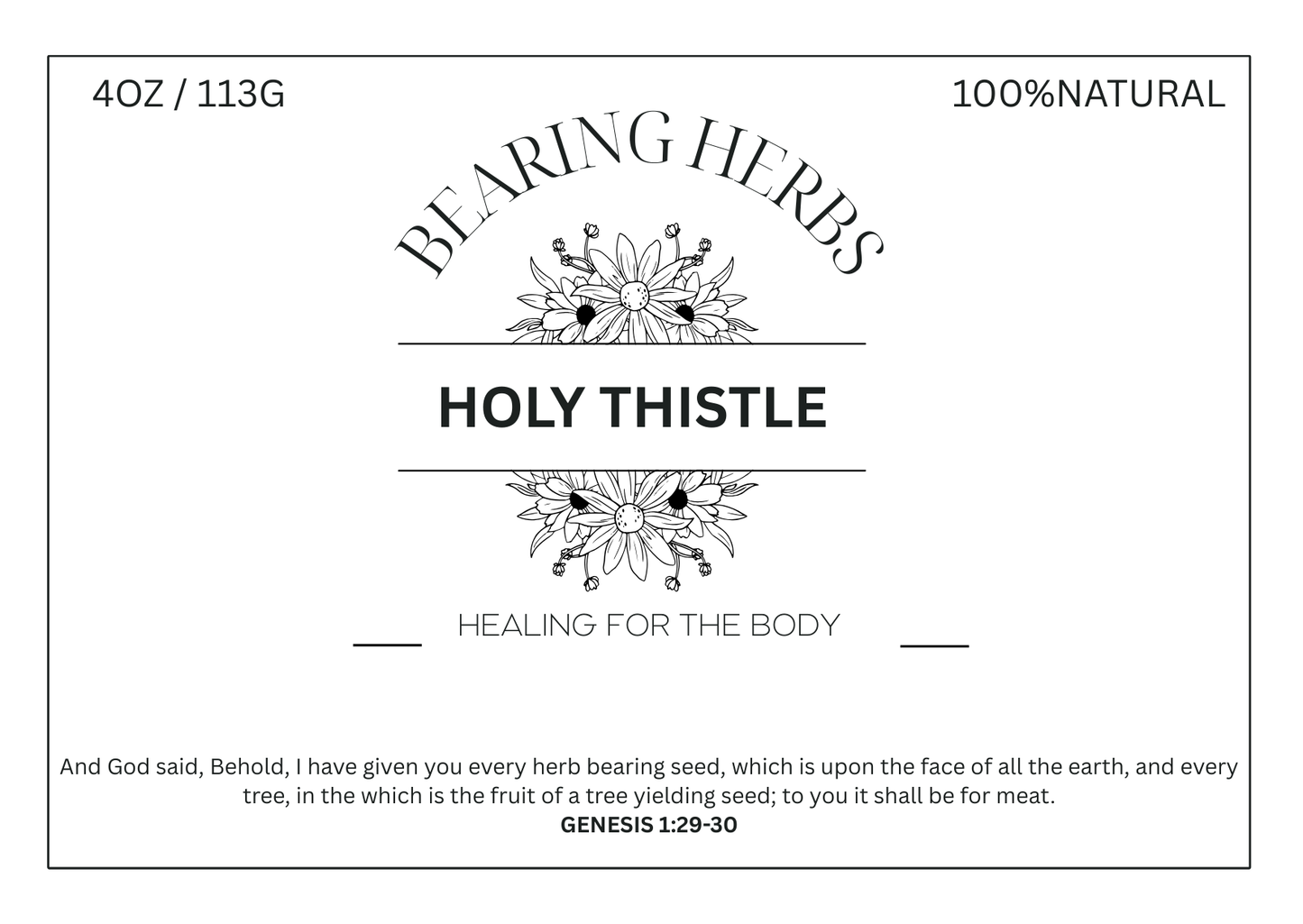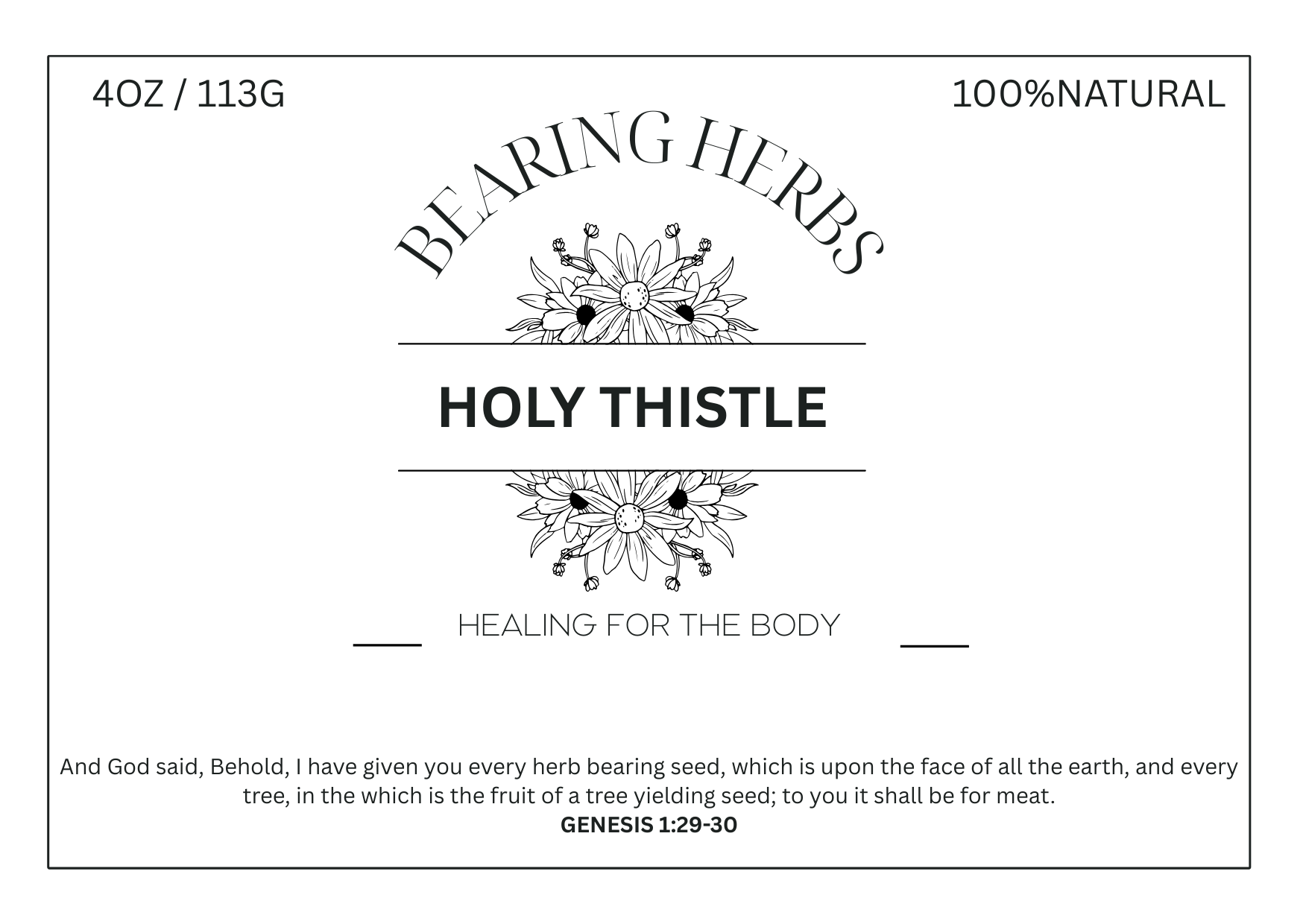Bearing Herbs
Holy Thistle
Holy Thistle
Couldn't load pickup availability
Holy Thistle (also known as Blessed Thistle or Cnicus benedictus) is a herb with a long history of use in traditional medicine, particularly for supporting digestion, liver health, and overall detoxification.
Properties of Holy Thistle:
-
Digestive Aid: Stimulates digestion, relieves indigestion, and supports overall gastrointestinal health.
-
Liver Support: Known for its liver-protective properties, it helps detoxify and support liver function.
-
Anti-inflammatory: Reduces inflammation in the body, particularly in the digestive system.
-
Antioxidant: Contains antioxidants that protect the body from oxidative stress and cellular damage.
-
Antimicrobial: Exhibits mild antimicrobial properties, helping to combat bacteria and infections.
-
Appetite Stimulant: Traditionally used to increase appetite, especially when someone has a poor appetite due to illness.
Common Medicinal Uses:
-
Digestive Health: Holy Thistle is often used to relieve bloating, indigestion, and improve overall digestion.
-
Liver Detoxification: Helps to detoxify the liver, improving its ability to filter toxins from the body.
-
Support for Anorexia: Increases appetite and supports digestion in people with poor or reduced appetite.
-
Menstrual Health: Sometimes used to regulate menstrual cycles and relieve menstrual cramps.
-
Immune Support: Its antimicrobial and anti-inflammatory properties help support the immune system.
Tea:
-
Boil 1 cup of water.
-
Add 1 teaspoon of dried Holy Thistle leaves or flowers.
-
Steep for about 10 minutes.
-
Strain and enjoy! You can add honey or lemon to enhance the flavor.
Safety & Precautions:
-
Generally Safe: Holy Thistle is generally safe when used in moderate amounts.
-
Pregnancy & Breastfeeding: Should be avoided during pregnancy and breastfeeding due to its potential stimulating effects on the uterus.
-
Medication Interactions: If you are on any medications, especially for liver health or digestion, consult a healthcare provider to avoid interactions.
-
Allergic Reactions: Some individuals may experience allergic reactions, particularly if they are allergic to plants in the Asteraceae family (e.g., ragweed, daisies).
*Disclaimer: This information has not been evaluated by the Food and Drug Administration. This information is not intended to diagnose, treat, cure, or prevent any disease.
Please be advised: Before making any changes to your diet, you should always consult with your doctor, especially if you are pregnant, nursing, or have existing conditions. All products are used at the customer's discretion. Results vary!

